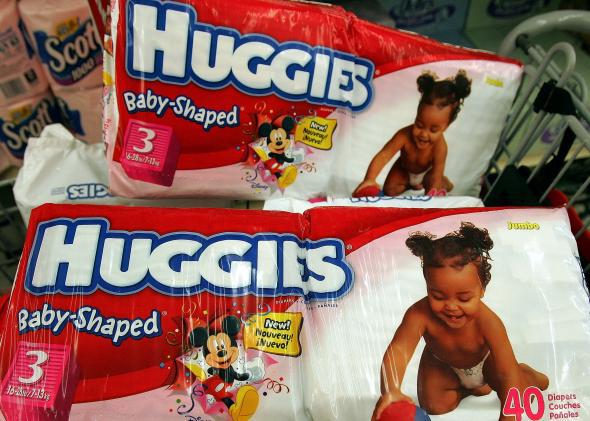Unable to afford the $18 a week it takes to keep a baby in clean disposable diapers, many parents living in poverty have taken to reusing dirty ones. This sad state of affairs led Joanne Goldblum, who was working at the Yale Child Study Center, to start the New Haven Diaper Bank and to begin trying to document the extent of the problem. This weekend she talked to NPR’s Arun Rath about witnessing the cost-saving measure:
I was working with families who had a variety of different things going on in their lives. But what they all had in common was a level of really abject poverty. And I would visit them and see firsthand them taking a diaper off their child, emptying out the solids and putting it back on.
Food stamps and similar programs don’t cover diapers, but even if they did, it would not help this situation. As Goldblum notes, families who rely on food stamps “don’t have enough money to make it to the end of the month,” which means dipping into the food stamps for diapers would just mean less food. The federal budget for food stamps is being cut back starting this week. A family of four receiving the maximum food benefit will be seeing that benefit decline by $36 a month. The money to cover the shortfall will have to be found somewhere, which means reusing diapers might be a solution that more families will turn to in order to stretch their dollars.
Goldblum and her colleagues published a study over the summer in Pediatrics about the problem and found that for mothers, an inability to afford fresh diapers for the baby was associated with more mental health and stress-related problems than being unable to provide food. So what’s the solution?
As KJ Antonia wrote in Slate a few years back, cloth diapers are not, because many daycares refuse to deal with children who wear them and many laundromats refuse to let you wash dirty diapers in their machines, for understandable reasons. While it would be nice to have a “green” and inexpensive fix, at present the only realistic solution is to get low income mothers the disposable diapers they need. There are diaper banks around the country, but they are overwhelmed with demand. The government needs to step in and provide diapers to needy families in the same way that WIC and SNAP provide food. There have been small government grants in the past, but this requires more comprehensive national support. Government aid would be a simple, hygienic solution for a problem impacting the poorest among us, which means it is unlikely to stand a chance in a political climate where even defending basic food assistance has become an exhausting battle.
